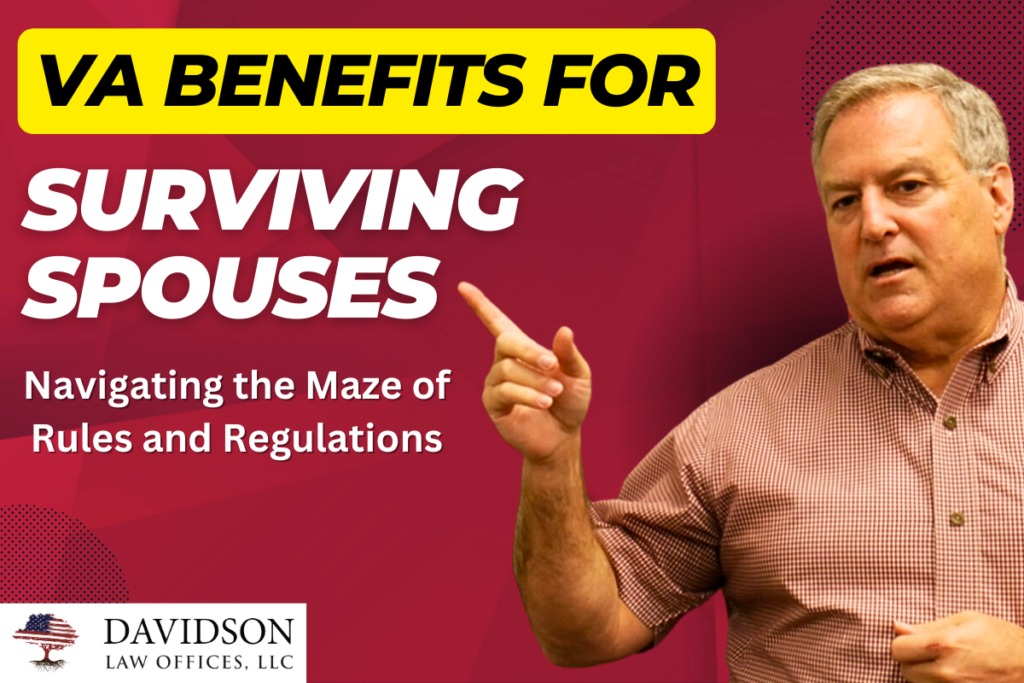To qualify for surviving spouse VA benefits, you as a claimant must be able to show that you were the valid or “deemed valid” spouse of a Veteran at the time of the Veterans death. The surviving spouse may also have to satisfy one or more of the following additional requirements:
Married One Year Prior to Veterans Death
What does it mean for a marriage to be “deemed valid?” This terminology is used in situations where couples don’t have a marriage certificate to prove their marriage. This happened a lot before same sex marriage was approved by law in 2015. It also applies for cases of common law marriage, which is only recognized in a few states.
If you live in a state where common law marriages aren’t recognized by law, you’ll need to get statements from relatives that verify your spousal relationship. Friends and relatives can submit statements saying that you and the Veteran held yourselves as a married couple, although you were not legally married. The VA can then look at this evidence and decide whether or not this “deemed marriage” was legitimate.
As the rule states, the surviving spouse must have been married to the Veteran for at least one year prior to the Veterans death. This rule doesn’t apply if the marriage occurred before or during the Veterans service. It also doesn’t apply in cases where the couple had a child.
I had this issue arise a few years ago. I had a Veteran client who had been married to his spouse more than once. They had actually been married to each other three times. When the surviving spouse has been legally married to the Veteran more than once, the date of the original marriage is used for survivor benefits purposes.
For example, let’s assume a Veteran and the surviving spouse were married in January of 2022. If the Veterans death happens in July 2022, they wouldn’t meet the one year requirement. But in this case where the couple had been previously married, they would meet the requirement of being the spouse at least one year prior to the Veterans death. Whenever there is a previous marriage, that will be the date the VA uses.
Continuous Cohabitation Prior to Veterans Death
The VA says that you have to have continuously cohabitated with the Veteran in order to receive survivor benefits at the Veterans death. This requirement does not mean that the Veteran and their spouse had to be together every single minute of their lives. It just means they can’t be separated and living apart at the time of the Veterans death.
Couples go on long vacations and get separated. It happens. But as long as the couple were no longer estranged at the time of the Veterans death, they would meet this requirement. If there is a petition for separation or divorce pending at the time of the Veterans death, that is going to be tough obstacle to overcome.
No Remarriage After Veterans Death
If you legally remarry another individual before the Veterans death, you’re not going to be entitled to spousal VA benefits. But what happens if you remarry after the Veterans death? There are a few random exceptions to this rule. But in my decades of helping Veterans, I’ve never seen any of these exceptions apply.
For the sake of this blog, let’s assume that remarriage is going to eliminate or prevent VA surviving spouse benefits. This is definitely something to consider if remarriage is in the cards for you. Can you afford to lose your surviving spouse benefits? Or should you not legally remarry so that you can keep those benefits?
Contact Us So We Can Help!
If you need assistance with VA survivor benefits, complete this form or give us a call at (229) 226-8183. If you’d like to see this blog in video format, you can watch it below. Please be sure to SUBSCRIBE to our YouTube channel and click the bell notification button so that you’re notified each time we publish a new video.

